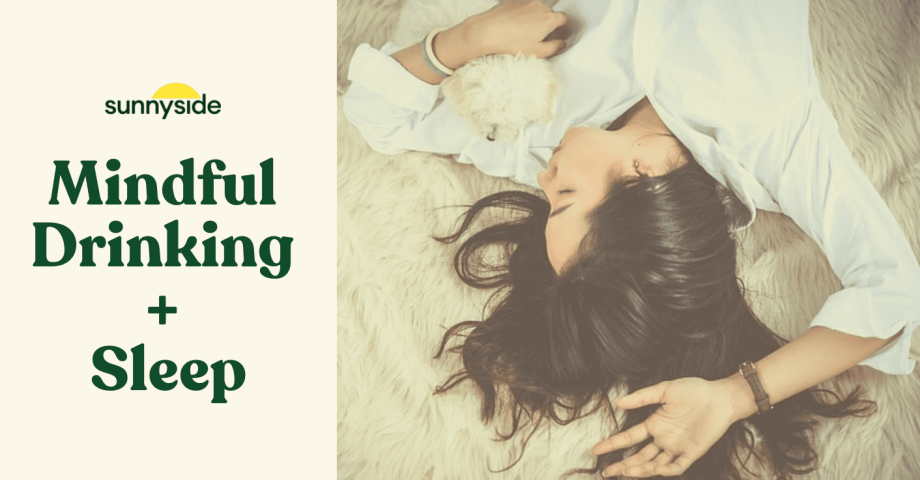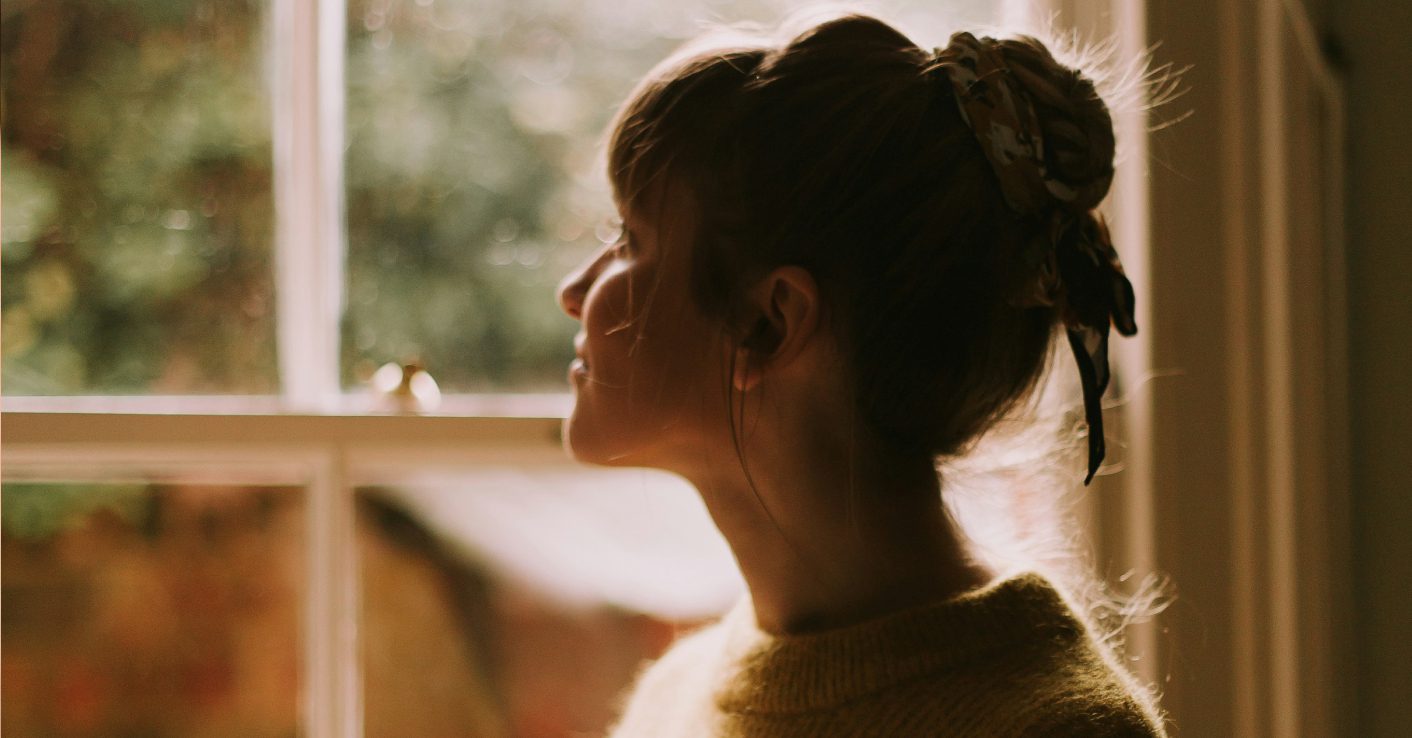Last Updated on May 25, 2023
You pour yourself a glass or two of wine, then head off to bed. Before you know it, you’re waltzing off into dreamland.
While alcohol may indeed help you fall asleep better, drinking alcohol too late in the day can have an overall negative impact on your sleep quality. In fact, it may be the reason you tend to wake up groggy and sluggish in the morning.
We’ll explore the relationship between alcohol and sleep further in this article. We’ll also look at 10 simple hacks you can try to reduce your alcohol intake and get better-quality sleep at night!
How Does Alcohol Affect Sleep?
The effects of alcohol on sleep may differ depending on how much you drink, what time you drink, how often you drink before bed, and how effectively your body metabolizes alcohol.
In general, research suggests that alcohol can reduce sleep onset latency, meaning you take less time to fall asleep. Alcohol may also induce deeper sleep during the first half of the night due to its sedative properties.
As your body begins to metabolize the alcohol you consume, the sedative properties of alcohol begin to wear off. And this is when trouble begins to brew.
Although alcohol can help you fall asleep faster, it can dampen your overall sleep quality. During the second half of the night, you may find that your sleep becomes disrupted, fragmented, and choppy, with increased wakefulness. At this point in the night, some people might also experience intense dreaming or nightmares.
Alcohol turns your normal sleep architecture inside out by creating an imbalance between non-REM and REM sleep throughout the night. Alcohol can also contribute to snoring and worsen sleep apnea. Plus, drinking before bed may be associated with an elevated heart rate during sleep as your body works actively to scrub alcohol out of your bloodstream.
As a result, you may experience reduced sleep quality and shorter sleep if you drink before bed. This habit can also increase daytime sleepiness and affect your mood, alertness, memory, and productivity the following day.
Some people who drink alcohol at night may find themselves in the vicious cycle of tackling insomnia through the use of alcohol. The initial period of being able to fall asleep faster, followed by a period of disrupted sleep, can lead to daytime sleepiness, which may then be remedied with caffeine. Insomnia due to this caffeine intake may then be medicated with alcohol, causing the cycle to repeat.
Because of all these reasons, drinking alcohol before bed isn’t the optimal wind-down routine.
But this doesn’t mean you’d have to abstain entirely from alcohol to get good sleep at night; and that’s where mindful drinking may just be the solution for you.
Start your Free Trial of Sunnyside10 Simple Hacks to Cut Back on Alcohol and Get Better Sleep at Night
Mindful drinking is the conscious effort to be aware of how much and when you drink and understand how alcohol impacts different facets of your life and wellness.
This practice encourages you to explore your relationship with alcohol, delve deeper into your reasons and urges to drink, and build healthier drinking habits that withstand the test of time.
We spoke with Dr. Seema Khosla, who is certified in sleep medicine and put together a list of mindful drinking tips and healthy practices that you can implement to ensure that your drinking habits don’t interfere with your sleep at night.
Hack #1: Stop drinking at least 4-6 hours before bed.
Your body metabolizes alcohol at the rate of one standard drink per hour, but its effects may last even after it’s been eliminated from your bloodstream.
Some research suggests that even late afternoon drinking, or “happy hour” drinking that occurs six hours before bedtime, can be disruptive to sleep.
If possible, it’s best to have a cut-off time for drinking that’s at least four hours before your bedtime, especially if you’re working the following day. This may help minimize the effects of alcohol on your sleep and preserve your daytime productivity and alertness.
Alternatively, you can make imbibing a weekend affair and put alcohol aside during your working days.
Hack #2: Set up a healthier wind-down routine.
Most of us live hectic lives. From chaotic morning commutes to the office to dealing with numbers, graphs, data, and people—your brain and body are hard at work all day.
Because of this, you cannot expect your mind to shift right into sleep mode at night. And this explains the importance of having a healthy wind-down routine before bed.
A wind-down routine helps your mind and body decelerate and relax at the end of the day, creating a conducive internal environment for sleep.
For some of us, alcohol has become an intricate part of our wind-down routine. While that isn’t optimal, it can be challenging to remove alcohol from the picture. The middle-ground solution to this may be cutting back on your nighttime or late evening alcohol intake instead of avoiding alcohol altogether.
Additionally, these are some healthy habits you can incorporate into your wind-down nightly routine, either to replace drinking or simply promote better sleep at night:
- Listen to your favorite playlist or pick up a book to read.
- Schedule technology-free time and put your devices away before bed.
- Try light stretching, yoga, meditation, or deep breathing exercises.
- Snack on some simple carbs after dinner, but avoid eating 2-3 hours before bed.
- Try journaling to organize your thinking and reduce overthinking or stress.
Scheduling enough time to wind down before bed eases the transition into sleep and contributes toward more restful and restorative sleep at night.
Hack #3: Set a drinking limit and create an action plan.
By taking charge of your drinking urges and habits, you can limit the negative impacts of alcohol on your health and sleep.
One of the best ways to promote better sleep and wellness is to set pre-determined drinking limits, boundaries, and wellness goals. You can also create an action plan to help you achieve those goals and stay within your drinking boundaries.
To create a personalized action plan, you may:
- Determine which days you are allowed to drink and which days you aren’t.
- Set up a daily or weekly drinking limit.
- Specify any cut-off times for drinking on different days.
- Keep tabs on your progress and alcohol consumption so you know if you’re on track.
You can also enlist the help of technology or an app. For instance, Sunnyside is a mindful drinking app that can help you create a weekly personalized action plan based on your wellness goals and current habits. The app also has drink-tracking tools to help you monitor your daily alcohol intake.
Hack #4: Opt for low-alcohol or non-alcoholic alternatives.
If a drink helps you relax before bed, consider replacing your favorite tipples with non-alcoholic or low-alcohol alternatives.
These more mindful alternatives aren’t always “bland” or “tasteless.” Many are similar in taste and flavor to their non-alcoholic counterparts.
Alternatively, you can make your own low-alcohol or non-alcoholic cocktails at home by using low-ABV or non-alcoholic spirits.
Hack #5: Get professional help for sleeping problems.
Some research suggests that one in ten people use alcohol to self-medicate for sleeping problems.
While alcohol has sedative properties, its overall effects on sleep are often detrimental. Thus, using alcohol to combat insomnia or other sleeping problems may, in fact, aggravate these issues in the long run.
If you drink alcohol to help you sleep better at night, it’s best to seek medical advice from a trained professional. They can determine the root cause of your sleep issues and suggest medication, therapy, or lifestyle changes as part of your management plan.
For instance, your healthcare provider may recommend sleep supplements like valerian root and melatonin or medications like sleeping pills or antihistamines to help with insomnia.
By managing any sleeping problems, you’ll no longer have to rely on alcohol to doze off at night.
Cut back on drinking and improve sleepHack #6: Get acquainted with what a standard serving of alcohol looks like.
According to the Dietary Guidelines for Americans, the recommended alcohol limit is not more than 2 standard servings of alcohol per day for men and not more than 1 standard serving of alcohol per day for women.
By following this recommendation, you can reduce your risk of any alcohol-related harm and minimize the impact of alcohol on your wellness and sleep.
But what does a standard serving of alcohol look like?
This differs depending on the type of alcohol you drink and its alcohol content.
For instance, one standard serving of 12% ABV wine is around 5 ounces. A standard red wine glass holds between 12 to 16 fluid ounces of wine. If you’re not paying attention, you may end up overpouring and drinking more than recommended.
Finding out what one standard serving of alcohol looks like for your go-to tipples can help you better determine if you’re consuming too much alcohol.
Hack #7: Invest in a good bottle stopper.
Depending on the type of wine you drink, storing unfinished wine using the proper methods may allow you to keep it for 1-5 days.
Re-corking the bottle can help you store your unfinished wine overnight. You could also purchase a good bottle stopper to provide an airtight fit that will help slow the oxidation process. Some wine stoppers are designed in a way that doesn’t require you to pop the cork.
Couple either of these with refrigerating your unfinished wine, and you’ll no longer have to down an entire bottle in one sitting.
Hack #8: Guard against temptation and minimize drinking triggers.
Is there a specific restaurant or bar that gets you drinking more than you should? Does stocking up on a few bottles of red wine at a time usually lead to more drinking at home than what you’d like?
One of the most important aspects of mindful drinking revolves around identifying your drinking triggers. Why do you drink, and what environmental factors contribute to your urge to imbibe?
A 2021 survey by Sunnyside found that some of the biggest triggers for drinking were decompressing, stress, celebration, boredom, and social pressure.
Reflect on what makes you drink, and devise strategies to minimize those triggers. For instance, if it’s a restaurant that you frequent in the evening, you may choose to visit it less often.
Avoiding drinking triggers may also make it easier to replace imbibing with healthier nighttime activities that will not throw off your sleep cycle.
Hack #9: Hang out with friends who respect your “no’s.”
Since social pressure is a common drinking trigger, you may choose to hang around friends who don’t usually drink.
But if drinking with friends is your method to decompress and unwind after a hectic workweek, we say, “Go ahead!” Set predetermined drinking limits beforehand, whip out the Sunnyside app to help you keep track of your drinking, and stick to friends who will respect your “no’s.”
Hack #10: Keep yourself accountable.
Trying to kick a habit alone can be very challenging. Instead, enlist the help of trusted friends and family who can play a part in keeping you accountable.
Let a few close friends or family members know that you’re working on improving your relationship with alcohol, and keep them in the loop with your progress.
Finding a community may also help keep you on track. Whether that’s a group of friends with the same goals or an online community of mindful drinkers—you’ll gain valuable advice and find support by becoming part of a like-minded community.
Create your personalized drinking planHow Sunnyside Can Help
Alcohol and sleep don’t mix well. If alcohol has become a part of your nightly routine, you may wish to be more mindful about how much and when you drink. Consider having dry days or cutting back on your nighttime alcohol intake.
Sunnyside helps keep you accountable based on the wellness goals you’ve set. Through weekly personalized action plans, you can gradually adjust your drinking habits to reach those goals and enhance your sleep quality.
You’ll also gain access to real-life trained coaches who can provide tailored advice, as well as drink-tracking and progress-tracking tools to help you stay on track!
Take the 3-min quizReferences
[1] https://www.ncbi.nlm.nih.gov/pmc/articles/PMC5821259/
[2] https://www.whoop.com/thelocker/how-long-does-alcohol-stay-in-system/
[3] https://www.ncbi.nlm.nih.gov/pmc/articles/PMC4666864/
[4] https://www.ncbi.nlm.nih.gov/pmc/articles/PMC2775419/
[5] https://www.cdc.gov/alcohol/fact-sheets/moderate-drinking.htm
[6] https://www.niaaa.nih.gov/alcohols-effects-health/overview-alcohol-consumption/what-standard-drink



